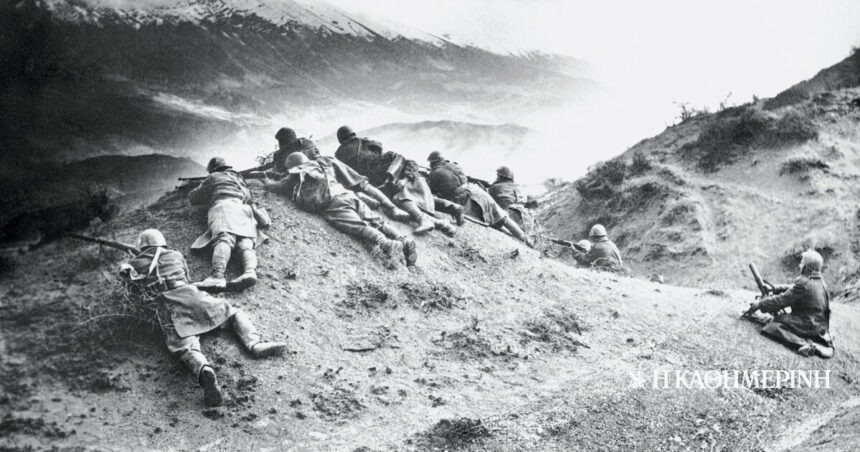In his excellent introduction of the work of François Rabelais “Gargantois – Pantagriel” (University Press of Crete, 2023) the Philip Drakontaideis notes: “From that tzukali (in. metaphorical of History) Rabelais chooses otherwise and not like this”. His last paragraph Italian ultimatum which indulged in Ioannis Metaxas her October 28, 1940 she was extremely clear about both the “thus” and the “otherwise” of her meaning. “The Italian government asks the Greek government to issue the necessary orders to the military authorities so that this occupation can be carried out in a peaceful manner. If the Italian troops wanted to meet resistance, this resistance would be met by arms and the Greek government would bear the responsibilities that would result from this.”
What followed in the following days and led to the Epic of ’40 was not foreseen even by the most optimistic. “…At that time no one, not even the most insane, expected the miraculous outburst of the people’s soul and the victories in Albania“, wrote o George Seferis at Manuscript of. This was the result of national unity and unity in the call of the motherland. It was the fight and the sacrifice that “Everyone agrees and everyone complains”. And next to the pages of the brilliant epic are the war narratives that record as a moral duty the preservation of the memory of the dead soldiers. The responsibility against oblivion. In the last pages of his war diary entitled For altars and hearths. War diary of 235 days in the line of fire, o Nikos Papavasiliou writes:
“[…] this is unfortunately the natural law and this is the fate of the dead! […] Your image in our memory will fade little by little and after a few years you will become unknown soldiers. […] We who were saved and returned to our homes, we will rebuild our lives, we will rebuild the ruins, we will be happy and our lips will laugh, no matter how poor or even enslaved we are. But you will never come again! Your suffering, poor children, will never end! […] You left life before you could enjoy it. You left like deserters and strangers, as if you had no people here who loved you and were waiting for your return. […] You left without your mother, sister or girlfriend being by your side, in your time of need, without mourning you and without changing you with good wishes for your long journey. […] Sadly, the bell of your village did not ring for you, you were not buried in a coffin with flowers, as is customary for those who die at the hands of their own, you were not read in church, you did not deserve the “last embrace” of your relatives and friends and you were not honored with their companionship in your final abode, no tears were shed on your grave, no candles were lit…”.
These were the experiences of the people who wrote History at the front and managed to prevail against the strong Italian military forces. The bravery of these people was in his mind George Vlachos, founder and director of the newspaper “I Kathimerini”when on March 8, 1941 he wrote to Open Letter to S.A. him Mr. A. Hitler, Chancellor of the German State: “The small or large Army of the Greeks that is free, as it was stationed in Epirus, will stand, if called, in Thrace. And what to do?… You will fight. And there. And he will fight. And there. And he will die. And there. And I will wait for the return of the runner from Berlin, who came five years ago and received the light from Olympia, in order to change the candle into a flame and bring the fire to the small, vast, but great place which, having taught the whole world to live, he must now teach it and die.”
“This place, having taught the whole world to live, must now learn it and die.” Georgios Vlachos, Founder and director of the newspaper “I Kathimerini”, Open Letter to Hitler.
March 8, 1941
This article is dedicated to their memory. Why did they choose the other way and not that way?
*Mrs. Konstantina D. Karakosta is an assistant professor of Modern Greek History.




